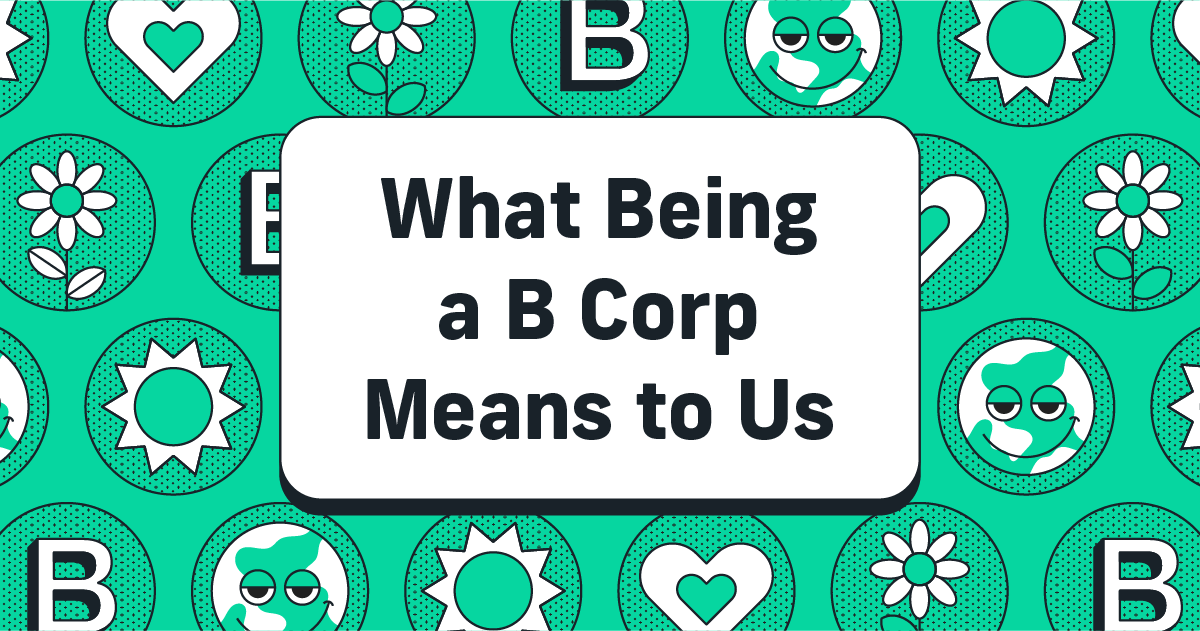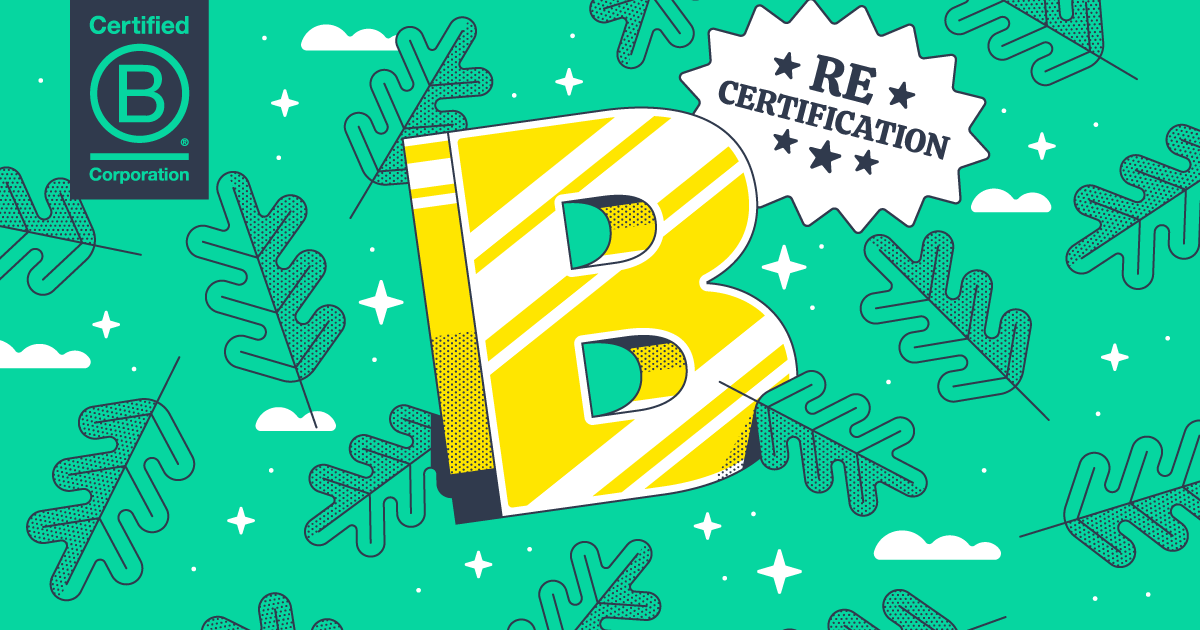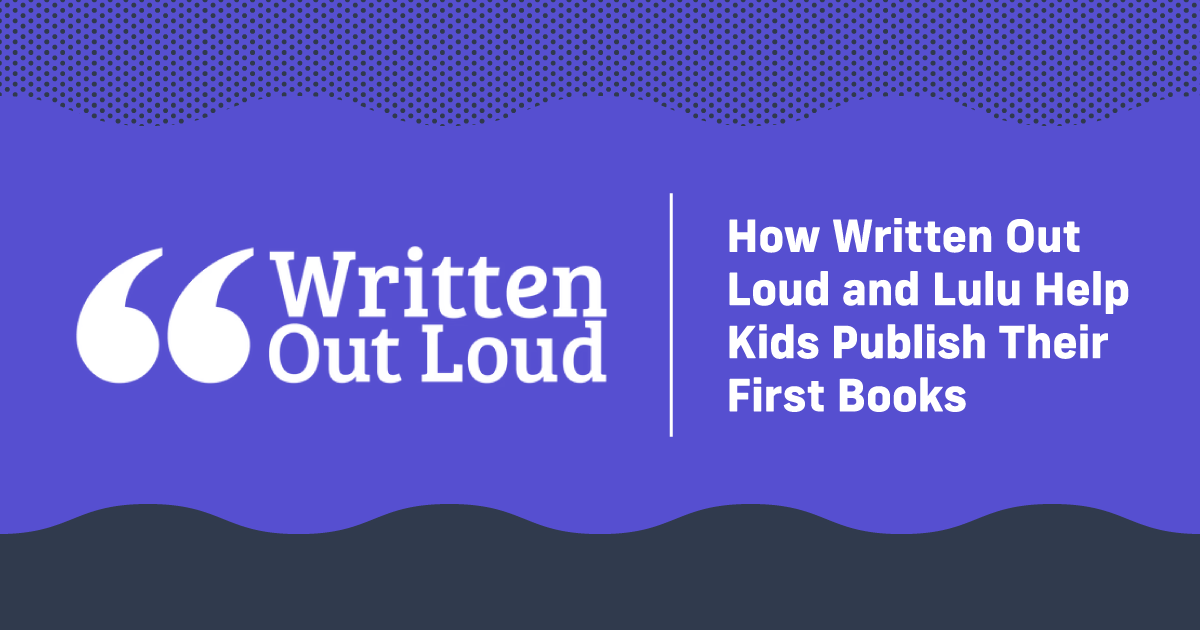What Being a B Corp Means to Us
In 2002, Lulu made publishing available to everyone through print-on-demand technology, enabling authors and creators to publish and distribute their work to readers worldwide. From the very beginning, we’ve been passionate about making publishing accessible and environmentally friendly by removing the traditional barriers to entry, making publishing resources available to everyone, and using sustainable production products and methods.
In 2016 we took our commitment to making a positive impact one step further by becoming B Corp certified.
What is a B Corp?
There’s more to being a B Corp than just using recyclable paper and printing fewer books. In fact, all certified B Corps have to undergo rigorous vetting on a recurring basis to both achieve and maintain their status as a B Corp.
Which means companies like Lulu, Patagonia, Ben & Jerry’s, Bombas, and Coursera, are truly committed to upholding a higher standard of performance, transparency, and accountability while striving for a better future.
All certified B Corps must achieve and maintain an impact assessment score that measures a business’s impact on: their employees, their community, and the environment. But more than that, businesses must prove that they are committed to creating a better future.
Why Does Being a B Corp Matter to Us?
Lulu is the first online publishing company to achieve B Corp status.
Which shouldn’t be a surprise, considering where we come from. Lulu founder Bob Young said:
“Lulu’s original intent was to remove barriers to publishing so that all authors could tell their story and profit from their knowledge. Little did we know, the print-on-demand business model we developed would eventually save millions and millions of trees from being turned into books no one wanted.”
Our authors rely on us to provide high-quality, conscientiously created products for their customers. As they should! Customers become more conscientious consumers with each passing year, especially with younger generations becoming more thoughtful and more intentional with their purchases. Our status as a B Corp underscores our promise and commitment to our authors and their customers.
We know that publishing—especially traditional publishing—isn’t the most environmentally friendly industry. But we believe that it can, and should, be better.
How Does Publishing Impact Our Planet?
The most obvious answer when you think of material waste from the publishing industry is paper. Printing books takes a lot of paper.
Exactly how much paper, though, is hard to say. You might find data from organizations like 8 Billion Trees that says 626,000 tons of paper are used to produce books in the US each year. Or GreenMatters.com citing that the US uses 32 million trees worth of paper on book printing each year. Googling “how much paper is used to print books each year” will definitely yield some pretty big numbers as results, but it’s important to recognize that those numbers are from data and articles from 2018, 2009, and even as far back as 2000.
Why is outdated data unreliable? The number of books printed and sold each year will fluctuate based on anticipated market demand. This Statista chart shows an overview of print book sales from 2004 through 2023—a number that ranges from 591+ million units in 2012 to 837+ million in 2021.
But even those numbers are estimates. Circana BookScan, the most reliable resource for book sales data, estimates that they can account for 85% of book sales in the US market, but the other 15% is still unknown. Plus, this data is reporting books sold—not books printed. That number is even higher.c
So there are a lot of unknown variables that make it difficult to truly say, or even accurately estimate, exactly how much waste the publishing industry produces each year. Here’s what we do know:
Material Waste in the Traditional Publishing Industry
Traditional publishing produces more books than it sells. The entire business model is based on intentional overproduction: publishers create high-volume initial print runs of their titles based on optimistic sales estimates, distribute those copies to retailers, and deal with the overstock as a calculated loss.
To be clear: traditional publishers intentionally print excess inventory for a print run. If a book is exceptionally successful—we’re talking Rebecca Yarros, Sarah J. Maas levels of success—they might sell through that initial print run and need to produce additional copies. But more often than not, more books are printed than sold.
So, what happens to those unsold books? That varies based on publisher, retailer, and quantity. Sometimes retailers will:
- Keep that overstock on hand and sell the books at a discount
- Sell them to wholesalers or secondhand retailers, who will handle the discounted sales (and, inevitably, eventual disposal of overstock)
- Handle inventory recycling on their own
Some books are either partially or completely returned to the publishers to be pulped. Books are stripped of their covers and mixed with a chemical solution to break down the ink, glue, and paper fibers. That pulp is then used to create new paper products, though at a degraded quality—not more print books, but maybe packing material, cardboard, paper napkins, etc.
But book production and distribution doesn’t just create physical waste—it also has a large and lasting carbon footprint.
Carbon Waste From Producing, Storing, Selling, and Recycling Traditionally Published Books
The full production and distribution cycle of a traditionally published book looks something like this:
- Books are printed in bulk quantity print runs
- Inventory is warehoused until at/near the release date
- Inventory is divided among brick-and-mortar stores and online retailers
- Books are kept on-hand at retailers until
- All copies are sold
- The retailer determines the books have outlived their shelf life
- Unsold books are redistributed, returned to the publisher, or disposed of
- Overstock books are pulped, destroyed, or thrown into a landfill
According to the American Booksellers Association, there are currently over 2,400 independent bookstores in the United States. There are also 600+ Barnes & Noble stores, 240+ Books-a-Million, and 970+ Hudson Group stores in airports and train stations throughout the country. Now think about the big box stores, supermarkets, indie boutiques, and a wide variety of other brick-and-mortar locations that carry even just a small inventory of super popular titles. And don’t forget about the online-exclusive retailers that still need on-hand inventory to quickly fulfill customer orders.
That’s a lot of delivery trucks out on the road to get that inventory from printers and warehouses to retailers all across the country.
There are plenty of other factors and variables to consider too!
Bulk printing is often done at print facilities outside of the United States, which means those mass quantities of books need to be shipped overseas before they can be distributed. Or even worse, the occasional horror story where the entire print run is lost at sea and the publisher has to reprint the whole thing before the next distribution step. Those overseas shipping containers, and transportation and storage to and from? More carbon waste.
Or consider the necessary packaging to make sure books in small and large quantities arrive from overseas printers to bookstores, distribution centers, and readers undamaged. And the marketing materials like ARCs, promotional bookmarks, or disposable collateral that often goes to waste after a book’s pre-launch campaigns have ended.
Plus, remember that many books go through this not just once, but twice. Books released in hardcover first will eventually have a paperback release, which not only restarts the whole production and distribution cycle, but also usually renders any remaining hardcover inventory as unsellable.

Your Free Lulu Account
Create a Lulu Account today to print and publish your book for readers all around the world
How is Print-on-Demand Any Better?
In 2024 Lulu printed over 4 million books & calendars for our authors and their readers. We’re proud of that number and excited for our authors and creators who are sharing their books with the world.
But how does that make us any better than the unknown millions of books being printed by the traditional publishing industry each year?
Print-On-Demand Production
The print-on-demand business model is the exact opposite of the traditional print model. Books are printed only after they’ve been ordered, which drastically reduces the amount of leftover, unsold, or wasted inventory.
In fact, print-on-demand reduces the need for inventory at all, which means there’s little to no carbon emission waste from warehouse storage.
It’s impossible to completely eliminate inventory waste. Authors may still choose to order in bulk so they have extra copies on hand. We may also handle the occasional return from customers reporting a print defect.
But our print partners are also the best of the best with a 0.5% defect rate, meaning there are very few books printed by Lulu that don’t end up in the hands of readers. And unlike traditional publishers, we know those 99.5% of books won’t go to waste.
Plus, those books are both printed and packaged using eco-friendly, sustainably-approved materials like acid-free paper for book blocks and recycled cardboard for packaging. Over 75% of our products and packaging are recyclable, come from recycled materials, or come from sustainably sourced materials.
Cutting Down the Supply Chain
Remember that multi-step production cycle for traditional books, the one that may include 5,000+ retailers each getting 2-5 copies of a book delivered to them? With the print-on-demand model that production cycle gets narrowed down to two steps:
- A customer orders a book
- The print facility closest to the customer prints it on-site and ships it directly to the customer
And that’s it. We haven’t completely eliminated the supply chain, but we’ve stripped it down to the bare minimum, eliminating significant amounts of both carbon emission waste and material shipping waste.
What Else Can We Do?
Choosing Lulu and other certified B Corp businesses means you are an advocate for environmental and social change, and you believe in the power of for-profit businesses that do good. But there are always other ways to impact change locally and at home!
We’ve partnered with a range of organizations that are committed to supporting and improving our local community, giving back to those in need, and establishing sustainability initiatives that will leave a lasting impact on the Raleigh-Durham area.
Learn more about how you can help, or find local organizations like these:
- Note in the Pocket
- Note in the Pocket provides clothing to impoverished and homeless children in Wake County, North Carolina, offering them dignity and hope through community support.
- Haven House
- Haven House is a non-profit that provides programming and space designed for local Raleigh-area youth to feel safe, supported, and successful.
- 321 Coffee
- 321 Coffee is a coffee shop that is staffed by individuals with intellectual and developmental disabilities, aiming to promote inclusion, provide meaningful employment opportunities, and serve great coffee within a community that celebrates diversity.
- Second Harvest Food Bank
- Second Harvest Food Bank is part of Feeding the Carolinas, a network of food banks dedicated to ensuring that everyone in North and South Carolina has equitable access to healthy food.
- CompostNow
- CompostNow is a national organization (and fellow certified B Corp) dedicated to facilitating at-home and in-office food composting efforts.




